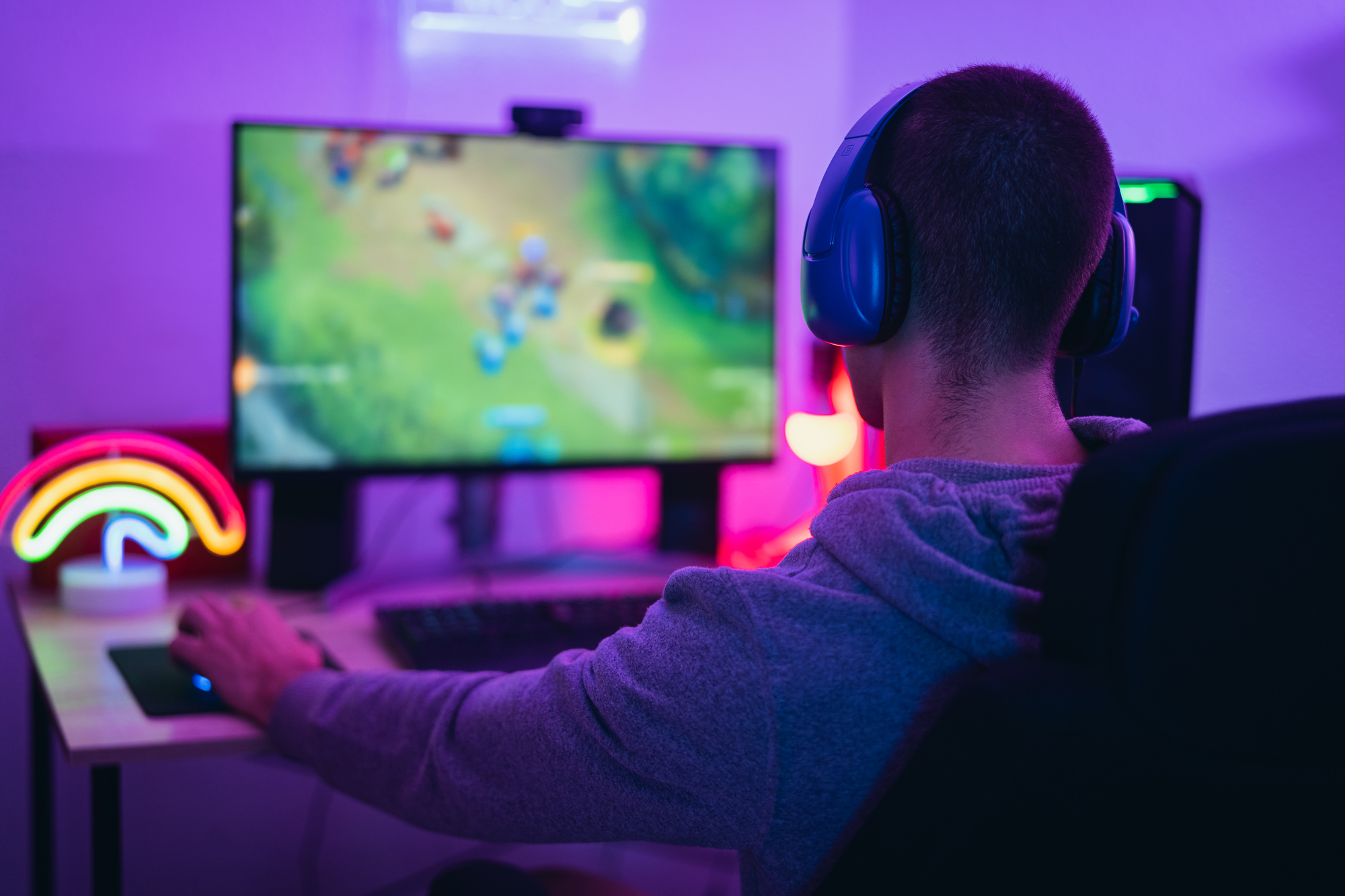Gaming and emotional intelligence share a fascinating connection. Recent studies suggest that video games can enhance psychological well-being and boost positive emotions. This link extends beyond mere entertainment, as gaming experiences may contribute to the development of emotional skills.
Video games offer unique opportunities for players to practice emotional regulation and social interaction in virtual environments. These digital worlds present challenges and social scenarios that can mirror real-life situations. As players navigate these experiences, they may improve their ability to recognize and manage emotions, both in themselves and others.
The impact of gaming on emotional intelligence appears particularly significant for adolescents. With online gaming becoming increasingly popular among young people, it presents both risks and opportunities for emotional development. While excessive gaming can lead to addiction-like behaviors, moderate and mindful engagement with games may foster emotional growth and social connections.
Understanding Emotional Intelligence in Gaming
Emotional intelligence plays a significant role in shaping players’ experiences and interactions within virtual environments. It influences how gamers manage their emotions, empathize with others, and regulate their behavior during gameplay.
The Psychology of Online Gaming
Online gaming creates unique psychological experiences for players. Virtual environments provide opportunities for social interaction, problem-solving, and emotional expression. Games often evoke strong feelings like excitement, frustration, or joy. Players must learn to recognize and manage these emotions effectively.
Multiplayer games require teamwork and communication. Gamers who can accurately perceive others’ emotions and respond appropriately tend to have more positive social experiences. This skill helps build cooperative relationships and enhances overall gameplay satisfaction.
Some players use games as a form of stress relief or emotional regulation. The immersive nature of gaming can provide a temporary escape from real-world pressures. However, excessive gaming as an avoidance strategy may lead to addiction in some cases.
Trait Emotional Intelligence and Virtual Environments
Trait emotional intelligence refers to an individual’s self-perceived emotional abilities. In gaming contexts, it affects how players navigate social interactions and manage their own emotional responses.
Gamers with high trait emotional intelligence often display better social skills in virtual environments. They can read social cues, even with limited non-verbal information. This skill helps them form stronger bonds with teammates and handle conflicts more effectively.
Emotionally intelligent players tend to have better coping strategies for dealing with in-game stress and setbacks. They can regulate their emotions during intense gameplay moments, leading to improved performance and enjoyment.
Research suggests that trait emotional intelligence may serve as a protective factor against problematic gaming behaviors. Players with higher emotional intelligence are less likely to develop addictive patterns of play.
Cognitive Control and Emotional Regulation in Gaming
Cognitive control mechanisms play a key role in how gamers regulate their emotions and behavior. These processes help players stay focused, make strategic decisions, and manage their reactions to game events.
Effective emotional regulation in gaming involves recognizing and modulating emotional responses. Players must learn to stay calm under pressure, control impulses, and maintain a positive attitude. These skills contribute to better performance and more enjoyable gaming experiences.
Games often present challenging situations that test players’ emotional control. Learning to handle frustration, disappointment, or anger constructively is an important aspect of gaming psychology. Players who develop strong emotional regulation skills may find these abilities transfer to real-life situations.
The Impact of Gaming on Mental Health and Relationships
Gaming affects psychological well-being and social connections in complex ways. Its influence spans stress levels, addictive behaviors, and interpersonal dynamics.
Stress, Addiction, and Psychological Health
Video gaming can impact mental health both positively and negatively. Some players experience reduced stress and improved mood through gaming. Studies show gaming may help alleviate symptoms of anxiety and depression in certain individuals.
However, excessive gaming can lead to addictive behaviors. Internet Gaming Disorder is now recognized as a condition requiring further study. Signs include preoccupation with games, withdrawal symptoms when not playing, and neglecting other activities.
Adolescents seem particularly vulnerable to developing problematic gaming habits. This can interfere with sleep, academic performance, and overall well-being.
Interpersonal Skills and Community Engagement within Games
Online multiplayer games create opportunities for social interaction. Players often form friendships and communities within game worlds. This can combat feelings of loneliness and isolation, especially for those who struggle with face-to-face social situations.
Gaming can foster teamwork, leadership, and communication skills. Many games require cooperation and strategy, promoting social problem-solving abilities.
However, the quality of these online relationships varies. Some players report meaningful connections, while others find interactions shallow or toxic.
Escapism vs. Addiction: Understanding the Difference
Moderate gaming can serve as a healthy form of escapism, providing stress relief and entertainment. It becomes problematic when used excessively to avoid real-life issues or responsibilities.
Key differences between healthy escapism and addiction:
- Time spent gaming
- Ability to stop when needed
- Impact on work, school, or relationships
- Presence of withdrawal symptoms
Individuals who use gaming to cope with mental health issues may be at higher risk of developing addictive behaviors. Professional help might be needed if gaming interferes with daily functioning or causes significant distress.
The Positive and Negative Effects of Gaming
Gaming impacts emotional intelligence and psychological functioning in various ways. Research has identified both benefits and risks associated with video game play, particularly for young people.
Enhancing Life Satisfaction through Gaming
Video games can boost mood and provide enjoyment. Players often experience positive emotions like excitement, pride, and a sense of accomplishment when overcoming in-game challenges. These positive feelings may carry over into daily life, potentially increasing overall life satisfaction.
Gaming can also foster social connections. Many games feature multiplayer modes that allow players to interact and cooperate with others. This social aspect may help reduce feelings of loneliness and isolation.
Additionally, certain games can enhance cognitive skills. Strategy games may improve problem-solving abilities, while action games can sharpen reaction times and spatial awareness. These cognitive benefits could contribute to increased confidence and self-efficacy in other areas of life.
Risk Factors and Protective Factors in Gaming
Excessive gaming can lead to negative outcomes. Some players develop compulsive gaming habits, neglecting other important activities and responsibilities. This may result in time management problems and decreased academic or work performance.
Certain game types or content may increase anxiety in susceptible individuals. Violent or highly competitive games could potentially exacerbate aggressive thoughts or behaviors in some players.
Protective factors can mitigate these risks. Parental involvement and setting healthy gaming limits help prevent compulsive use. Choosing age-appropriate games and encouraging a balanced lifestyle with other activities can also protect against negative effects.
Individual differences play a role in gaming outcomes. Players with pre-existing mental health issues or poor coping skills may be more vulnerable to developing problematic gaming habits.
Assessing the Role of Gaming in Adolescent Development
Gaming can impact adolescent development in complex ways. For some teens, video games serve as a coping mechanism for stress and anxiety. Games may provide a sense of control and achievement during a period of rapid changes and uncertainty.
However, excessive gaming during adolescence could interfere with important developmental tasks. Time spent gaming may come at the expense of in-person social interactions, physical activity, or academic pursuits.
Gaming’s effect on identity formation in adolescents is an area of ongoing research. Some studies suggest that online gaming communities can provide a space for teens to explore different aspects of their identity in a low-risk environment.
The impact of gaming on adolescent brain development remains a topic of debate. While some research indicates potential benefits for cognitive skills, concerns exist about the effects of prolonged screen time on attention and impulse control.












